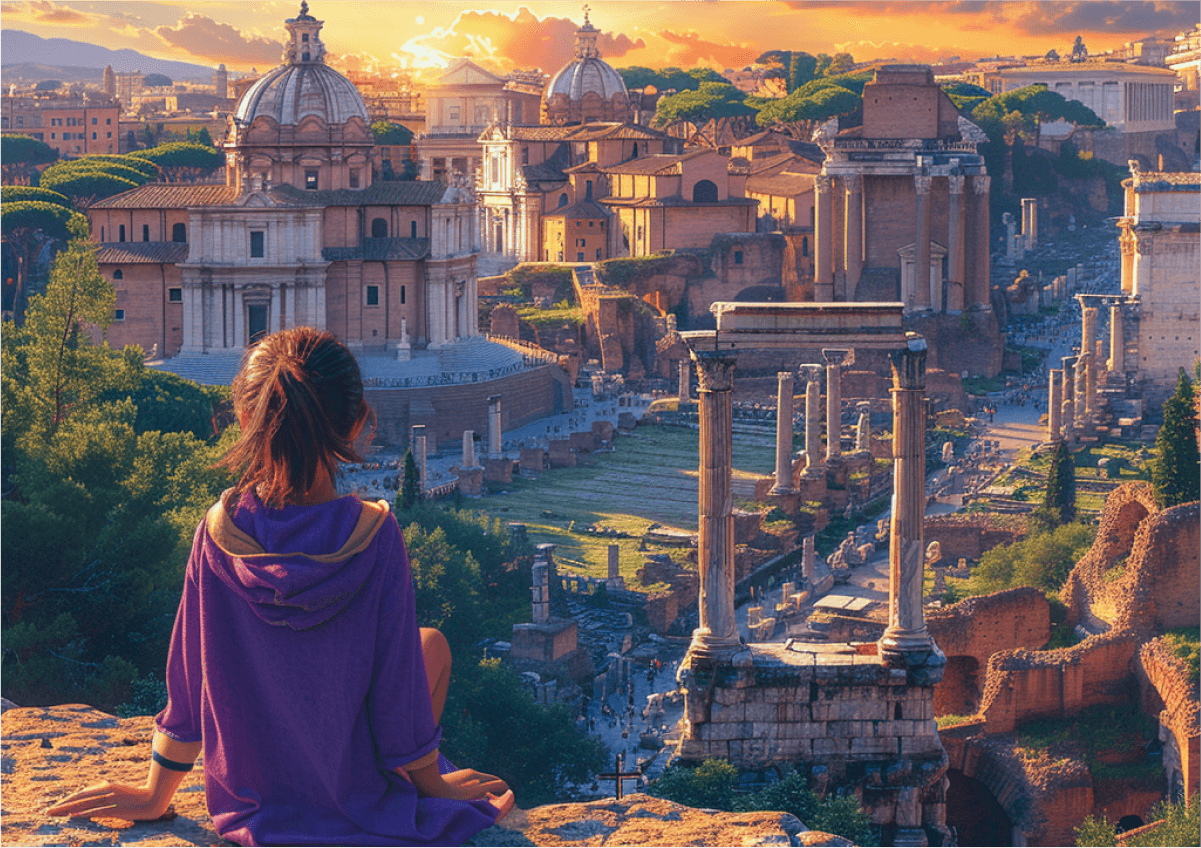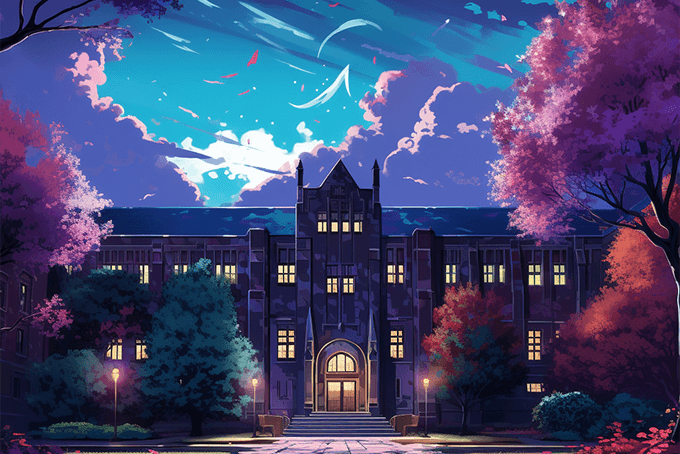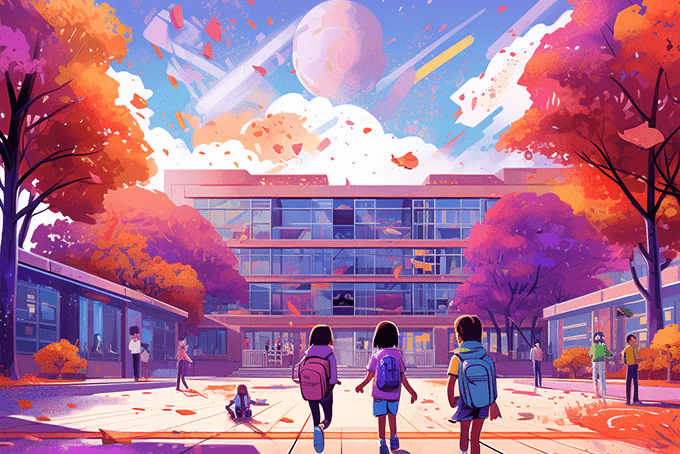Are you planning a visit to the Roman Forum with kids? The Roman Forum is a fascinating historical site that offers a glimpse into ancient Roman civilization. To make the most of your visit and engage your kids in the rich history of this iconic landmark, it’s a great idea to prepare them beforehand. In this article, we will explore 20 fun activities that will not only educate your kids about the Roman Forum but also make the experience enjoyable and memorable.
Create a Roman-themed scavenger hunt
A scavenger hunt is a fantastic way to get your kids excited about the Roman Forum. Create a list of items or landmarks they need to find within the site, such as the Temple of Saturn or the Arch of Titus. Provide them with clues and let them explore the area while learning about the significance of each discovery. This activity will encourage their curiosity and make the visit more interactive.
Before embarking on the scavenger hunt, take some time to educate your kids about the Roman Forum. Explain its historical importance as the center of political, religious, and social life in ancient Rome. Share interesting facts about the structures they will encounter during the hunt, such as the Senate House and the Basilica Julia. This background knowledge will enhance their understanding and appreciation of the site.
Additionally, you can create flashcards with images and information about each landmark. Quiz your kids on their knowledge before and after the scavenger hunt to see how much they have learned.
Make a Roman costume
Immerse your kids in the world of ancient Rome by making Roman costumes together. Use simple materials like bedsheets, belts, and safety pins to create tunics and togas. Encourage them to get creative and add accessories like laurel wreaths or sandals. Dressing up as Romans will not only make the visit more fun but also help your kids imagine what life was like during that time.
While making the costumes, take the opportunity to teach your kids about Roman clothing and fashion. Explain the significance of different garments and accessories, such as the toga worn by Roman citizens or the stola worn by Roman women. Show them images or illustrations of ancient Roman clothing to inspire their designs. This hands-on activity will deepen their understanding of Roman culture and style.
Furthermore, you can discuss the importance of clothing in ancient Rome as a symbol of social status and identity. Talk about how clothing choices varied based on gender, age, and occupation. This exploration of Roman fashion will add an extra layer of historical context to their visit to the Roman Forum.
Learn about Roman gods and goddesses
The ancient Romans had a rich mythology with a pantheon of gods and goddesses. Introduce your kids to this fascinating world by teaching them about the major deities worshipped in ancient Rome. Discuss the roles and characteristics of gods like Jupiter, Mars, Venus, and Minerva. Engage them in stories and legends associated with these gods to spark their imagination.
To delve deeper into Roman mythology, encourage your kids to create their own stories or artwork inspired by the gods and goddesses. This creative exercise will not only enhance their storytelling skills but also deepen their understanding of Roman culture and beliefs. You can also watch animated videos or read books that retell ancient Roman myths in a child-friendly manner.
Additionally, discuss the connection between the Roman gods and the structures found in the Roman Forum. For example, explain how the Temple of Saturn was dedicated to the god of agriculture and wealth. This connection will help your kids make meaningful associations during their visit.
Practice speaking basic Latin phrases
Latin was the language spoken in ancient Rome, so learning a few basic phrases can be a fun and educational activity. Teach your kids simple greetings, expressions, and phrases like “salve” (hello), “vale” (goodbye), and “gratias tibi ago” (thank you). Practice these phrases together and encourage your kids to use them during your visit to the Roman Forum.
Expand your kids’ knowledge of Latin by teaching them some common words and phrases related to the Roman Forum. For example, explain the meaning of words like “forum” (public square), “templum” (temple), and “basilica” (public building). This vocabulary will help them understand the purpose and function of different structures within the site.
You can also create flashcards with Latin words and their English translations. Quiz your kids on their knowledge of these words to reinforce their learning. This linguistic exploration will make their visit to the Roman Forum more engaging and immersive.
Build a model of the Roman Forum
Bring the Roman Forum to life at home by building a model of the site with your kids. Use materials like cardboard, clay, or even LEGO bricks to recreate the iconic structures. Encourage your kids to research and accurately represent the architectural details of each building. This hands-on activity will not only foster their creativity but also deepen their understanding of the Roman Forum’s layout.
While constructing the model, discuss the purpose and significance of each structure. Explain how the Roman Forum served as a hub for political, religious, and commercial activities. Talk about the different architectural styles used in ancient Rome, such as the use of columns and arches. This exploration of Roman architecture will enhance your kids’ appreciation of the real-life structures they will encounter during their visit.
Additionally, you can watch videos or documentaries about the Roman Forum’s history and architecture. Point out specific features or details in the model that align with what they learn from these resources. This multi-sensory approach will deepen their understanding and make the visit more meaningful.
Watch a documentary about ancient Rome
Expand your kids’ knowledge of ancient Rome by watching a documentary together. Choose a child-friendly documentary that explores various aspects of Roman civilization, such as daily life, politics, and architecture. This visual medium will captivate their attention and provide a comprehensive overview of the historical context surrounding the Roman Forum.
While watching the documentary, encourage your kids to take notes or draw pictures of interesting facts or scenes. Afterward, engage in a discussion about what they learned and how it relates to the Roman Forum. Ask open-ended questions to stimulate their critical thinking and encourage them to share their observations.
Furthermore, you can extend their learning by researching specific topics mentioned in the documentary. For example, if the documentary mentions the Colosseum, explore its history and significance in more detail. This exploration will deepen their understanding and make their visit to the Roman Forum more enriching.
Cook a Roman-inspired meal
Food is an excellent gateway to understanding different cultures. Cook a Roman-inspired meal with your kids to introduce them to the flavors and ingredients of ancient Rome. Research traditional Roman recipes and choose dishes that are simple and kid-friendly. Involve your kids in the preparation process and explain the historical context behind each dish.
While cooking, discuss the importance of food in ancient Roman culture. Explain how the Romans valued communal dining and the significance of certain ingredients like olive oil, wine, and garum (a fermented fish sauce). Show your kids images or illustrations of ancient Roman banquets to give them a visual representation of the dining experience.
Additionally, you can encourage your kids to create menu cards or placemats inspired by ancient Roman designs. This artistic activity will further immerse them in the Roman culture and make the meal more memorable. As you enjoy the meal together, share stories or facts about Roman dining customs and traditions.
Play Roman-themed games
Make learning about the Roman Forum enjoyable by playing games with your kids. There are various board games and online resources available that offer a fun and interactive way to explore ancient Rome. Look for games that involve strategy, problem-solving, or trivia related to Roman history and culture.
Before playing the games, provide your kids with a brief overview of the historical context and concepts they will encounter. Explain how the game relates to the Roman Forum and encourage them to make connections between the gameplay and the real-life structures and events. This critical thinking exercise will deepen their understanding and engagement.
Furthermore, you can organize a family game night with Roman-themed games as the main attraction. This shared experience will not only educate your kids but also create lasting memories. Consider awarding small prizes or tokens to make the games even more exciting.
Read books about Roman history
Books are a fantastic resource for learning about ancient Rome. Visit your local library or bookstore and choose age-appropriate books that cover various aspects of Roman history. Look for books that are engaging, visually appealing, and provide accurate information. Read these books together with your kids and discuss the content.
While reading, encourage your kids to ask questions and share their thoughts or observations. Pause at certain points to clarify any confusing concepts or vocabulary. Additionally, you can assign each family member a different book and have them present a summary or interesting facts to the rest of the family. This collaborative approach will foster a deeper understanding and encourage active participation.
Furthermore, consider organizing a book club with other families who are also planning to visit the Roman Forum. This shared reading experience will not only provide different perspectives but also create a sense of community and excitement leading up to the visit.
Visit a local museum with Roman artifacts
Before visiting the Roman Forum, take your kids to a local museum that houses Roman artifacts. This pre-visit excursion will give them a tangible connection to ancient Rome and help them visualize the objects they will encounter at the Roman Forum. Look for museums that have interactive exhibits or guided tours specifically designed for children.
During the museum visit, encourage your kids to ask questions and engage with the exhibits. Read the information plaques together and discuss the significance of each artifact. Point out similarities or differences between the museum artifacts and the structures they will see at the Roman Forum. This comparative analysis will deepen their understanding and appreciation of both contexts.
Additionally, you can challenge your kids to sketch or take photographs of their favorite artifacts. This artistic exercise will encourage them to observe details and develop their visual literacy skills. Later, they can compare their sketches or photographs with the actual structures at the Roman Forum.
Draw pictures of Roman architecture
Encourage your kids to explore their artistic side by drawing pictures of Roman architecture. Provide them with art supplies like pencils, markers, or watercolors and let their imagination run wild. Encourage them to focus on specific structures they will encounter at the Roman Forum and capture their unique perspectives.
While drawing, discuss the architectural elements and features of Roman buildings. Explain the purpose of columns, arches, and domes in ancient Roman construction. Show your kids images or illustrations of famous Roman structures like the Colosseum or the Pantheon to inspire their artwork.
Additionally, you can organize a mini art exhibition at home where each family member displays their Roman-inspired artwork. Encourage everyone to share their artistic choices and explain the significance behind their drawings. This creative exploration will deepen their understanding of Roman architecture and foster a sense of pride in their creations.
Listen to Roman music
Music is a powerful medium for connecting with different cultures. Introduce your kids to the music of ancient Rome by playing recordings of Roman melodies or recreations of ancient instruments. Discuss the role of music in Roman society and how it was used for entertainment, religious ceremonies, or military events.
While listening to the music, encourage your kids to identify different instruments or rhythms. Discuss the emotions or moods evoked by the music and how it relates to the historical context of ancient Rome. You can also explore the connection between music and theater in ancient Rome, as performances were an integral part of Roman culture.
Furthermore, you can organize a family sing-along session where you learn and perform simple Roman songs together. This interactive experience will not only educate your kids but also create a joyful atmosphere leading up to the visit to the Roman Forum.
Create a timeline of Roman history
Help your kids visualize the chronological progression of Roman history by creating a timeline together. Use a large piece of paper or a whiteboard and divide it into different time periods, starting from the founding of Rome to the fall of the Western Roman Empire. Research key events and figures from each era and add them to the timeline.
While constructing the timeline, discuss the significance of each event and its impact on Roman society. Explain how the Roman Forum played a central role in many of these historical moments. Encourage your kids to ask questions and make connections between the events on the timeline and the structures they will encounter during their visit.
Additionally, you can assign each family member a specific era or event to research in more detail. This collaborative approach will not only distribute the workload but also provide different perspectives and insights. Present the findings to the rest of the family and engage in a discussion about the interconnectedness of Roman history.
Learn about Roman numerals
Introduce your kids to the Roman numeral system, which was widely used in ancient Rome. Teach them the basic symbols and their corresponding values, from I (1) to M (1000). Practice reading and writing numbers using Roman numerals and challenge your kids with simple arithmetic problems.
While exploring Roman numerals, discuss their practical applications in ancient Rome. Explain how they were used for counting, record-keeping, and even on public monuments. Show your kids examples of Roman numerals in real-life contexts, such as clock faces or book chapter numbers.
Furthermore, you can organize a scavenger hunt where your kids need to decipher Roman numerals to find hidden clues or objects. This interactive activity will reinforce their learning and make the visit to the Roman Forum more engaging.
Practice Roman numerals here.
Watch videos of Roman reenactments
Bring the past to life by watching videos of Roman reenactments. These performances recreate historical events, battles, or daily life in ancient Rome. Look for videos that are age-appropriate and provide accurate representations of Roman culture and customs. Discuss the significance of the reenactments and how they contribute to our understanding of ancient Rome.
While watching the videos, encourage your kids to observe the costumes, props, and actions of the performers. Discuss the historical accuracy of the reenactments and how they align with the information they have learned about the Roman Forum. Ask your kids to imagine themselves as participants in these reenactments and how they would feel or act in different scenarios.
Additionally, you can organize a family reenactment of a specific event or scene from ancient Rome. Assign roles, create costumes, and act out the scene together. This immersive experience will not only educate your kids but also create lasting memories.
Practice writing with a quill pen
Transport your kids back in time by practicing writing with a quill pen, similar to what the ancient Romans used. Purchase or make quill pens using feathers and ink. Teach your kids the proper technique for holding and using the quill pen and let them practice writing their names or simple phrases.
While practicing writing, discuss the importance of writing in ancient Rome and how it was used for communication, record-keeping, and literature. Show your kids examples of ancient Roman manuscripts or inscriptions to inspire their writing. Discuss the differences between writing with a quill pen and modern writing instruments.
Furthermore, you can organize a mini calligraphy session where your kids can experiment with different writing styles and embellishments. This artistic exploration will deepen their understanding of ancient Roman writing and make the visit to the Roman Forum more immersive.
Make a Roman mosaic
Introduce your kids to the art of Roman mosaics by creating one together. Use small tiles, colored paper, or even cereal pieces to design a mosaic pattern. Discuss the significance of mosaics in ancient Roman culture and how they were used to decorate floors, walls, and public buildings.
While making the mosaic, discuss the different techniques and materials used in ancient Roman mosaics. Explain how the Romans used tesserae (small pieces of stone, glass, or ceramic) to create intricate designs and patterns. Show your kids images or illustrations of famous Roman mosaics to inspire their creativity.
Additionally, you can encourage your kids to research the symbolism behind different mosaic patterns or motifs. Discuss the stories or messages conveyed through these designs and how they relate to the Roman Forum. This exploration of Roman art will deepen their understanding and make their visit more enriching.
Explore virtual tours of the Roman Forum
If you’re unable to visit the Roman Forum in person, take advantage of virtual tours available online. Many websites offer interactive virtual tours that allow you to explore the site from the comfort of your home. Take your kids on a virtual tour and encourage them to navigate through the different structures and landmarks.
During the virtual tour, encourage your kids to ask questions and point out interesting details or features. Discuss the historical significance of each structure and how it contributed to the daily life of ancient Romans. Encourage your kids to imagine themselves walking through the Roman Forum and experiencing the sights and sounds of ancient Rome.
Furthermore, you can organize a virtual scavenger hunt where your kids need to find specific landmarks or objects within the virtual tour. This interactive activity will engage their curiosity and make the virtual visit more exciting.
Attend a Roman-themed event or festival
Check if there are any local events or festivals that celebrate ancient Rome or Roman culture. These events often feature reenactments, performances, or educational activities related to ancient Rome. Attend these events with your kids to immerse yourselves in the atmosphere and engage in hands-on experiences.
While attending the event, encourage your kids to participate in the different activities or workshops available. Discuss the historical accuracy of the performances or demonstrations and how they contribute to our understanding of ancient Rome. Engage with the event organizers or performers to ask questions and learn more about specific aspects of Roman culture or history.
Additionally, you can encourage your kids to document their experience through photographs, sketches, or journal entries. This reflective practice will deepen their understanding and create lasting memories of their Roman-themed adventure.
Visit a Roman historical site nearby
If you’re unable to visit the Roman Forum directly, explore Roman historical sites in your local area. Many cities around the world have remnants of Roman structures or artifacts that offer a glimpse into ancient Roman civilization. Research and visit these sites with your kids to provide a tangible connection to the Roman Empire.
During the visit, discuss the historical context of the site and how it relates to the Roman Forum. Compare and contrast the architectural styles, materials, or functions of the structures you encounter. Encourage your kids to ask questions and make connections between the local site and the broader Roman civilization.
Furthermore, you can organize a mini research project where your kids investigate the history and significance of the local Roman site. Have them present their findings to the rest of the family and engage in a discussion about the interconnectedness of ancient Rome.
Preparing your kids for a visit to the Roman Forum can be an exciting and educational journey. By engaging in these 20 fun activities, you will not only enhance their understanding of ancient Rome but also create lasting memories and a sense of anticipation for the visit. So, get ready to embark on a Roman adventure with your kids and explore the wonders of the Roman Forum together!
Read more:



